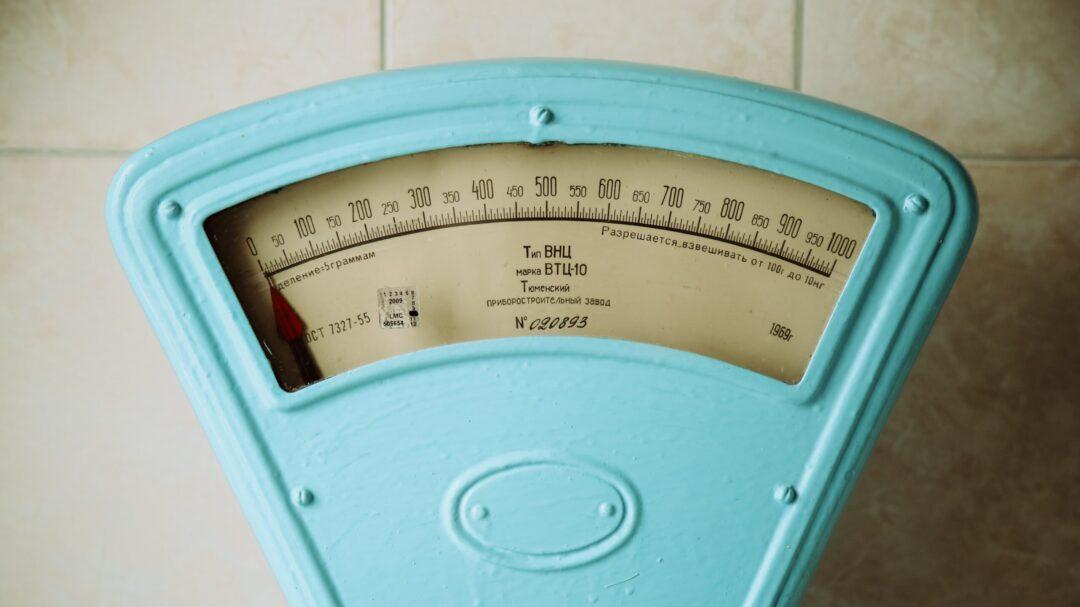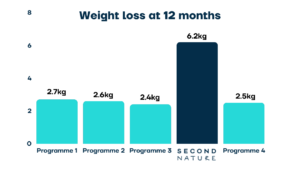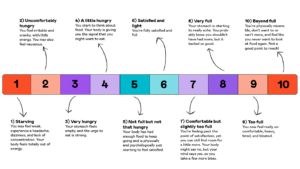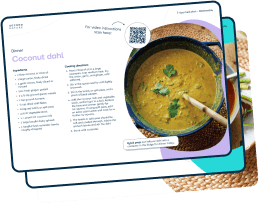Jump to: Do you need to count calories to lose weight? | Bored of counting calories? | Take home message
Nutrition
How many calories to lose weight?
Written by
Robbie Puddick (RNutr)
Content and SEO Lead
Medically reviewed by
Dr Rachel Hall (MBCHB)
Principal Doctor
6 min read
Last updated February 2026

Medication-assisted weight loss with a future focus
Start with Wegovy or Mounjaro, transition to habit-based health with our support


How many calories should I eat to lose weight?
A calorie deficit of 10% would be enough to support sustainable weight loss in the long term as it’s less likely to trigger a starvation response from the brain.
A calorie deficit of 30% (or more) would result in more rapid weight loss. Still, it would likely lead to a more dramatic starvation response, leaving you hungry and lethargic, and may impact your mental health.
How can you calculate how many calories this would be?
Your daily calorie intake to lose weight will depend on your total energy expenditure and current weight, the total sum of all the energy you burn each day.
When we have an estimate of this, we can calculate the number of calories you need to eat to help you lose weight.
Your energy expenditure (EE) is comprised of four areas:
- Basal metabolic rate (BMR): This is the energy required to keep your essential functions running, such as the energy needed for your heart, liver, and brain. It contributes around 60-70% of your total EE.
- Exercise activity thermogenesis (EAT): The energy required to fuel your formal exercise habits, such as running, cycling, or walking the dog. The contribution to your total EE depends on your activity levels, anywhere between 10-30%.
- Non-exercise activity thermogenesis (NEAT): The energy that fuels your spontaneous movement, such as fidgeting or when you move your hands whilst presenting to a group. The contribution to total EE again depends; it could be anywhere from 5-15%. (NEAT is always spontaneous and non-conscious movement, if you consciously move your hand, that’s not NEAT, it would count towards exercise activity.)
- Thermic effect of food (TEF): The energy required to break down the food you digest. Protein has the highest effect on this, then carbohydrates and fat. This accounts for around 5-10% of your total EE.
So, we now understand what contributes to our energy expenditure, but how can you calculate yours?
Without access to a sports science lab to get more accurate assessments, there are equations we can use to calculate this. Fortunately, there are now online tools we can use to do these calculations for us to give us an estimate.
It’s important to highlight these are just estimates. These calculations make many assumptions, such as your total fat mass and muscle mass, and won’t be 100% accurate – but if you’re looking for a ballpark figure, they can be helpful.
So, let’s present two examples:
- A 55-year-old female with a height of 167 cm who weighs 97 kg and does little to no exercise.
– BMR: 1578 calories
– Total EE: 1893 calories
– 10% calorie deficit target: 1703 calories
– 30% calorie deficit target: 1325 calories - A 50-year-old male with a height of 184cm who weighs 110 kg and exercises 1-3 times a week.
– BMR: 2005 calories
– Total EE: 2757 calories
– 10% calorie deficit target: 2481 calories
– 30% calorie deficit target: 1930 calories
Do you need to count calories to lose weight?
The short answer is no. It’s true that we need to be in a calorie deficit to lose weight, so all of the information above is valid from that perspective, but this doesn’t mean we need to count calories to achieve this.
While it can be a helpful tool for some people, calorie counting to eat a low-calorie diet has many flaws, which we cover in full detail in our guide on why you don’t need to count calories to lose weight.
Still, here’s a quick summary of why you don’t need to count calories to lose weight:
- We’re terrible estimators of our calorie intake: Research has shown that we can underestimate our intake by as much as 50%.
- Our energy expenditure is fluid: Our activity levels constantly change, and our sleep fluctuates, like our stress and environmental temperatures. All these things will impact your total energy expenditure, and you’ll never know exactly how many calories you need to eat to be in a deficit or maintain weight.
- How many calories you eat isn’t necessarily how many calories you’ll absorb: Research on nuts, specifically almonds, has shown that as little as 68% of the calories from almonds are absorbed and digested in some people.
- Food labels are inaccurate: Legally, food labels are allowed up to a 20% error rate for calorie information.
- All sources of calories aren’t created equal: Counting calories may distract you from the more important point about food: food quality. If you consume 200 calories from a McDonald’s cheeseburger or 200 calories from an egg and avocado on sourdough toast, your body will respond very differently.
- It’s tedious: Suppose you were counting calories, losing weight, and doing well – how long can it last? Will you be happy to continue counting calories for life? For some people, they can; for many – it’s too tedious and time-consuming.
Bored of counting calories? You might need to try a more sustainable alternative
Research has suggested that while more severe calorie deficits lead to more rapid weight loss in the short term, there’s a bigger chance of weight regain compared to more gradual weight loss with a smaller calorie deficit.
In 2022, the NHS published research in the British Medical Journal from the National Weight Management and Diabetes Prevention programme, where five providers delivered weight loss services in the UK.
The results showed that after 12 months, Second Nature was more than twice as effective as the four other providers.

Despite our recommendations to not count calories, our members are likely able to eat fewer calories as they enjoy the food they’re eating while losing weight and are less likely to gain weight again in the long term.
How does Second Nature’s approach work?
We approach nutrition and healthy eating differently. We don’t give you a calorie goal, count carbs, track macronutrients, weigh food, or assign strict targets on your intake.
We provide you with evidence-based guidance on a balanced diet and teach you to understand what your physical and emotional drivers for eating are to reach your weight loss goals, increase your physical activity, and naturally lower the amount of calories you eat.
We also provide tools to help manage your portion sizes, such as our hunger scale and mindful eating techniques, that help you tune into your physical hunger cues and manage your food choices.

Alongside this, we help you build healthy habits that you can enjoy for a lifetime to help you maintain a healthy weight.
Our feedback inbox is filled with people like Jo, who lost over eight stone to achieve a healthy body weight on Second Nature after following our nutrition guidelines and receiving the support of our app and health coaches.
The difference is that members of Second Nature learn to love healthy foods again by eating a healthy diet that’s also indulgent. They’re no longer restricted. They’re liberated.
If you’d like to join over 150,000 others who’ve joined Second Nature, lost weight and kept it off with the support of our registered dietitians and nutritionists, then click here to take our health quiz.
Alternatively, click here to join over 2,000 monthly visitors to our NHS-trusted meal plan and try the Second Nature weight loss plan for free.
Take home message
- To estimate how many calories you need to lose weight, you need to get an estimate of your energy expenditure.
- Research suggests that a smaller calorie deficit of around 10% might lead to more sustainable weight loss over time than more severe calorie deficits of 30% or more, which can trigger a starvation response by the body.
- You don’t need to count calories to lose weight. Research has shown that more balanced approaches to weight loss can be more effective.
- Second Nature’s approach, which doesn’t include counting calories, was shown to be more than twice as effective at supporting weight loss than four other providers in the UK’s national weight management programme.
Medication-assisted weight loss with a future focus
Start with Wegovy or Mounjaro, transition to habit-based health with our support



Download our free, indulgent 7-day meal plan
It includes expert advice from our team of registered dietitians to make losing weight feel easier. Subscribe to our newsletter to get access today.
You might also like
As seen on
As seen on
